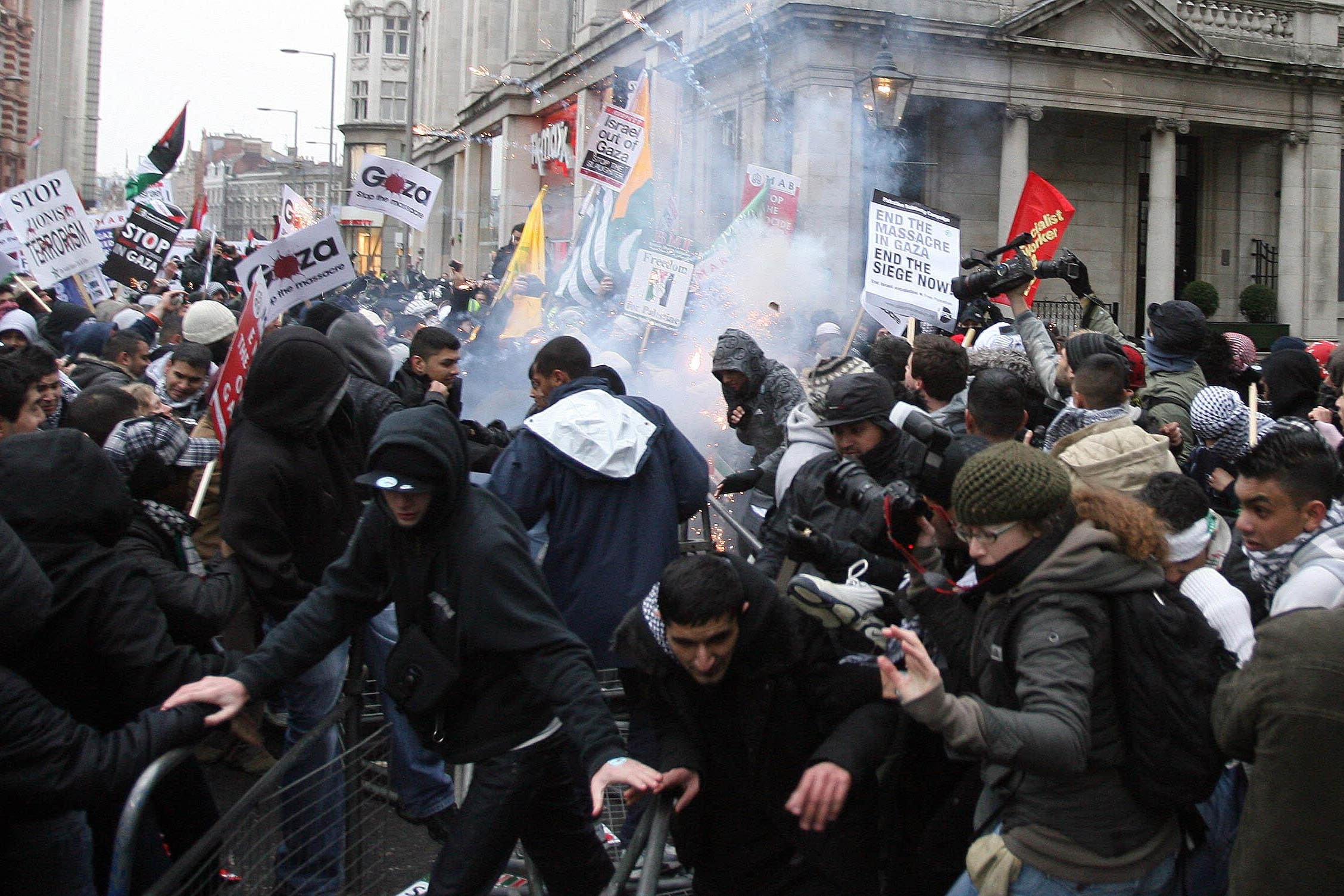Laws to strip protesters of masks must protect dissidents – Labour
Shadow Home Office minister Dan Jarvis said the party would carefully scrutinise the Government’s proposals.

Ministers have faced calls to ensure new laws to strip protesters of masks are used fairly, to protect the foreign families of political dissidents in the UK from harm.
The Government wants to give police the power to arrest demonstrators who cover their face to avoid prosecution, as part of a package to crack down on criminality at protests.
But shadow Home Office minister Dan Jarvis warned that “dissidents opposing oppressive regimes” who protest outside foreign embassies in the UK should be allowed discretion when wearing face coverings to protect their families abroad from harm.
Labour said it would carefully scrutinise the Government’s other proposals, which will make it illegal to carry flares and other pyrotechnics at protests, and could see demonstrators who scale national monuments, like war memorials, jailed for three months and fined £1,000.
The UK is and should always be a safe haven for dissidents opposing oppressive regimes
As the Commons heard from the Government about its plans to add the measures to the Criminal Justice Bill, Mr Jarvis said: “It is essential that the police are able to maintain public order whilst safeguarding the right to legitimate peaceful protest.
“We will therefore scrutinise the details of these proposals to ensure that any new measures are applied appropriately and proportionately.”
He added: “Whilst we do understand the genuine concern about protesters committing public order offences wearing face coverings, we are also concerned that there might be at times legitimate reasons why some protesters would want to wear face coverings.
“Let me give the minister an example. When dissidents protest outside foreign embassies, and the minister will know which ones I have in mind, they may well want to conceal their identity to protect their families back home.”
The Labour frontbencher asked for more clarity about how the new powers would be used, adding: “The UK is and should always be a safe haven for dissidents opposing oppressive regimes.”
Mr Jarvis welcomed the ban on flares and fireworks, as well as the plans to curtail protesters from climbing war memorials, which he described as “extremely important places, places to remember those who have made the ultimate sacrifice in the service of our country”.
Security minister Tom Tugendhat assured MPs it would be at “a police officer’s discretion to give an order for the face covering to be required to be removed”.
He added: “That will mean that those commanding the policing of protesting will have the discretion as to when they will be asking for that instruction to be carried out.”
Officers already have the power to ask people to remove face coverings at designated protests – where forces believe crimes are likely to occur.
But the new offence will allow police to arrest protesters who disregard their orders, with those who flout the rules facing a month behind bars and a £1,000 fine.
People feel helpless in the wake of the situation - unfolding 24/7 on our social media feeds - in Israel and Gaza
Responding to Labour’s calls to reveal when the Government would update the definition of “hateful extremism” as a further step to combat criminality at protests, the security minister said he would soon be having a meeting on the matter.
He added there was “an awful lot that we must to do make sure that those groups which pose a danger of extremism are addressed in other ways as well”.
For the SNP, Amy Callaghan said the party opposes the measures to “clamp down on people’s right to protest”.
The MP for East Dunbartonshire said: “People feel helpless in the wake of the situation – unfolding 24/7 on our social media feeds – in Israel and Gaza. They donate what they can in a cost-of-living crisis, they boycott, they protest.
“How does Westminster respond? By cutting cost-of-living support, by banning public bodies from ethically investing, by clamping down on the right to protest with measures that will particularly impact certain people in society – particularly those living with a disability.”
She added: “Isn’t this just another example of this Government pandering to its far-right wing rather than protecting the legitimate right to protest?”
Mr Tugendhat, in his reply, said: “I’m sorry, but not entirely surprised, that the SNP is choosing to make divisive politics out of what has, frankly, been a moment of national unity.”
Conservative MP Greg Smith (Buckingham) welcomed the measures before adding: “There should be a presumption in them that there should be an immediate application of them where offences are seen because too often in the protests we’ve seen since October 7, vile antisemitic posters have been displayed and banners carried unchallenged – only later, particularly the Metropolitan Police, to put out appeals of ‘do you know this person?’.”
Bookmark popover
Removed from bookmarks